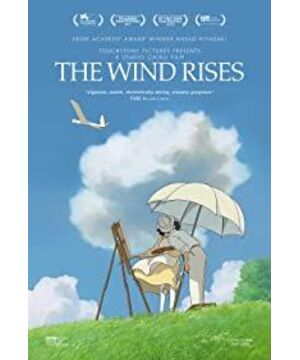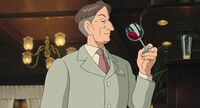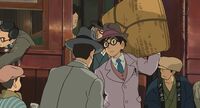Perhaps the winds of that era were too heavy. In Japan around 1920, the economy was depressed, poverty and illness were rampant, and the Great Kanto Earthquake caused the people to suffer. Japan finally chose military expansion and entered the war. The protagonist is innocent. He just yearns for a world with pyramids and has a dream of making planes. He understands that his plane will become a weapon of war, but he only emphasizes that the plane is innocent at first, but the most beautiful dream. Emphasizing the "beauty" of ideals and consciously separating the persistent pursuit of fighter jets from the value judgment of war is unscientific. A scientific and rational hero should persist in resistance while pursuing ideals. Perhaps in the film, the German aircraft designer Junkers broke off relations with the Hitler Group because he was dissatisfied with the Hitler Group.
The seriously ill Nahoko gave up the treatment in the hospital because of her infinite miss for Erlang, and eloped to the place where Erlang was. In fact, she just wanted to leave him her most beautiful moments, even if it was only for a short period of time, without regretting her life.
I really like Ouyang Xiu's saying, "Life is full of love and infatuation, and this hate has nothing to do with the wind and the moon". Separation is the innate feeling of human beings. When the wind blows, it is just the waves that are stirred in the heart. The ripples are the sonata of our lives.
View more about The Wind Rises reviews











